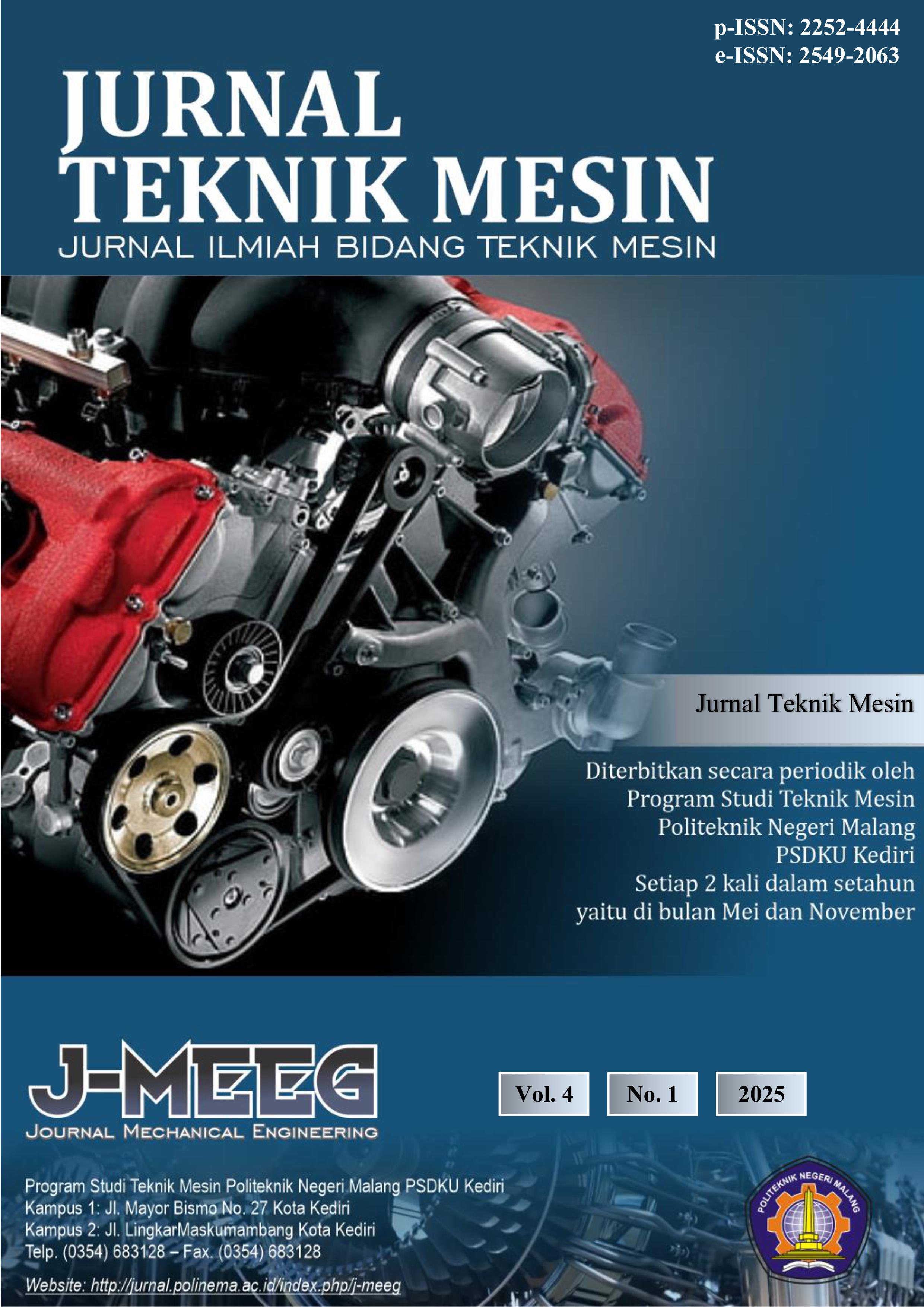PENGARUH PERLAKUAN ALKALI DAN FRAKSI VOLUME TERHADAP KEKUATAN IMPACT KOMPOSIT SERAT SABUT KELAPA (COCOFIBER) - EPOXY
EFFECT OF ALKALI TREATMENT AND VOLUME FRACTION ON THE IMPACT STRENGTH OF COCONUT FIBER COMPOSITE (COCOFIBER) – EPOXY
DOI:
https://doi.org/10.33795/j-meeg.v4i1.5688Keywords:
Komposit, Cocofiber, Uji ImpactAbstract
As a country that has a tropical climate, Indonesia is one of the largest coconut producing countries in the world. It is recorded at the Central Statistics Agency that in 2022 total coconut production will reach 2.87 million tons. A composite is a material that is formed from a combination of two or more materials so that a composite material is produced that has different mechanical properties and characteristics from the material that forms it. The coconut fiber - epoxy composite consists of coconut fiber as a filler and epoxy resin as a matrix. Coconut fiber - epoxy composite is an alternative material that has the potential to replace conventional materials, one of which is in making vehicle bumpers. This research aims to determine the effect of alkali treatment time and volume fraction of coconut fiber (cocofiber) - epoxy composites on impact strength. The experimental method used was a variety of alkali soaking treatments for 1.5 hours, 2.5 hours and 3.5 hours and fiber volume fractions of 10%, 15% and 20%. The test results show that a 10% volume fraction with 3.5 hour alkali treatment produces the lowest impact strength of 0.017 J/mm², while a 20% volume fraction with 1.5 hour alkali treatment produces the highest impact strength of 0.048 J/mm² which meets Japanese standards Industry Standard (JIS) A5905 – 2003 with an impact strength of 0.02433 J/mm². This study concluded that a higher volume fraction resulted in a higher impact strength value, but this value decreased with increasing alkali immersion time.




